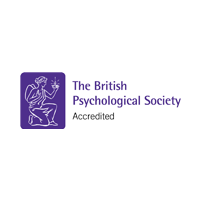Advanced Placement Tests
5, 5, 5 in three Advanced Placement Tests.
We accept no more than one Calculus AP as one of these three subjects. AP Seminar and AP Research are not accepted as one of these three AP subjects.
You must also obtain Grade 3 in AP Calculus AB, Calculus BC, Statistics or Precalculus OR 720 in SAT Mathematics OR 30 in ACT Mathematics. If you are unable to take one of these qualifications, we may also be able to accept suitable performance in Mathematics subjects (for example Pre-Calculus, Calculus, Algebra, Statistics) within your High School Diploma.
When assessing your application, we will also be looking for evidence of a high academic standard across a breadth of study, for example through additional AP Tests, your wider school curriculum and SAT or ACT scores if you have taken them.
If you would like advice about your own set of qualifications, please email admissions@bath.ac.uk
Honours or Dual Enrolment classes
If you are unable to take the Advanced Placement tests required above, we may be able to consider your application if you can demonstrate a high level of academic achievement through honours, dual enrolment or equivalent ‘advanced’ level classes on a case-by-case basis. Typically, we would be looking for one honours, dual enrolment or equivalent ‘advanced’ level class in place of each Advanced Placement test.
You must also obtain Grade 3 in AP Calculus AB, Calculus BC, Statistics or Precalculus OR 720 in SAT Mathematics OR 30 in ACT Mathematics. If you are unable to take one of these qualifications, we may also be able to accept suitable performance in Mathematics subjects (for example Pre-Calculus, Calculus, Algebra, Statistics) within your High School Diploma.
When assessing your application, we will also be looking for evidence of a high academic standard across a breadth of study, for example through your wider school curriculum and SAT or ACT scores if you have them.
Please send a copy of your high school transcript and details of any pending classes to admissions@bath.ac.uk if you would like to discuss your application.
Associate Degrees
3.5 GPA
We consider applications from students with Associate Degrees on a case-by-case basis and will carefully review the content of the classes you have studied. We will be looking for a high standard across a breadth of academic study.
You must also have Grade 3 in AP Calculus AB, Calculus BC, Statistics or Precalculus OR 720 in SAT Mathematics OR 30 in ACT Mathematics. If you do not have one of these qualifications, we may also be able to accept suitable performance in Mathematics subjects (for example Pre-Calculus, Calculus, Algebra, Statistics) within your Associate Degree.
Please email admissions@bath.ac.uk with a copy of your university and high school transcripts and details of any pending classes if you would like to discuss your application.
A levels or the International Baccalaureate Diploma
We accept these qualifications whether you have studied them in the UK or abroad. Our entry requirements are listed under the 'United Kingdom' section.
International Foundation Years
If you have not studied qualifications we typically accept, or you do not expect to meet our requirements in your current studies, you may wish to consider an International Foundation Year.
We accept International Foundation Years offered by other UK colleges and universities on a case-by-case basis. Please contact us for further advice.

Social psychology and individual differences
Learn about the relationship between individual, social and cultural psychological processes.
You'll become familiar with research on the individual in the social context, and develop a critical understanding of the major theoretical debates and recent developments in social psychology.
You'll gain knowledge of personality and individual differences, and develop a critical understanding of the theoretical perspectives on personality and individual differences.